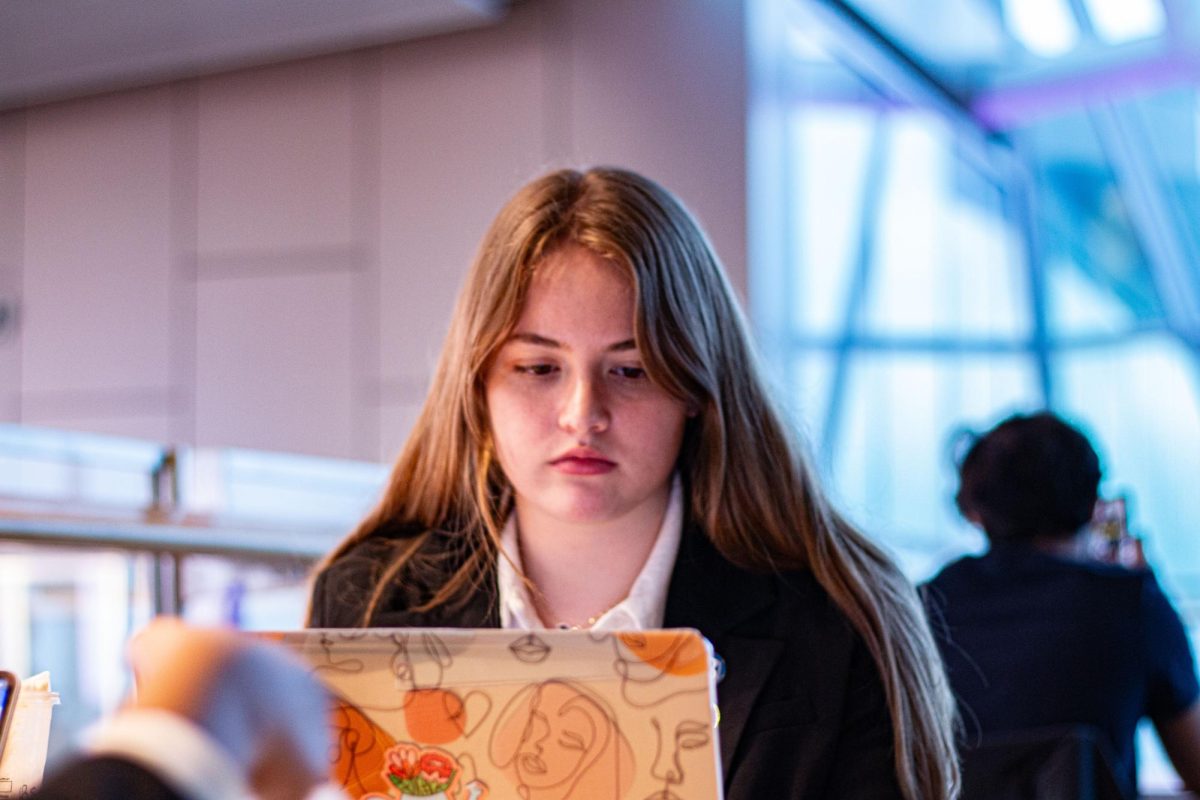As students enter the fourth week of the semester, the first formal assignments begin to loom in sight. For students in first-year seminars, the first essay, usually the first of their college careers, is fast approaching. Thankfully, the university has structured resources so these challenges are not so intimidating—one of the main resources being Peer Mentors.
Peer Mentors are a part of the seminar just as any other student, sitting through the lectures and contributing to the discussions. However, they bring expertise as returning students who have made their way through years of essays and semesters of classes. They are available for one-on-one meetings to go over upcoming essays and homework.
Kaley Whipkey, the Peer Mentor in Professor Ian Drinkwater’s first-year seminar on court cases, sat down to discuss her role and experience while sharing some heartwarming advice. Whipkey is a fourth-year student majoring in criminology and criminal justice, interested in pursuing a career in juvenile justice. Her Bachelor’s Degree is under the Sociology Department, and according to Whipkey, it gives her a “sociological perspective on a lot of things” while gaining an understanding of the “layout of the criminal justice system and the logistics associated with that.”
Similarly, Whipkey is a student in the Honors College, which gives her the opportunity to minor in wealth, poverty and opportunity. As a part of the Honors College, she can take special classes associated with her major like HONORS 293: Criminal Courts in America, taught by former First Justice from the Plymouth County Superior Court in Massachusetts, Justice Minehan.
Theories Whipkey learns in the classroom are applied as soon as she steps on the rest of campus. Beyond being a Peer Mentor, she is involved as the co-chapter of Strong Women Strong Girls, the co-chancellor of German Club and the Vice President of the Undergraduate Student Government.
“Being involved gives me resources and social skills, like the ability to present and talk,” Whipkey said. Being involved also gives her a clear understanding of the distinction between help and support. “Strong Women Strong Girls is more about support than help. The kids don’t need help, the program is to uplift what they already have and bring light to how awesome they are.”
As a Peer Mentor, Whipkey applies this attitude of support to the classroom: “We serve as a bridge to all resources on campus. If a student needs support with anything—say getting accommodations from the Ross Center—it is my responsibility to already have the knowledge, or if I don’t have the answer, to find the answer.” In her one-on-one meetings she doesn’t only focus on academics, but makes a point to be open to discuss resources or how to get involved.
She recognizes that being aware of events going on may be challenging. UMass Boston has developed a platform called UMBeinvolved where all club and organization information and events are centralized. This can be accessed at https://umb.campuslabs.com/engage/ . Whipkey noted the best way to stay up to date with events is through Instagram.
“Follow every UMass Boston related account. They repost each other’s posts, creating a strong network that enables you to see so much, and it is pretty accessible,” said Whipkey. The top three Instagram accounts she recommended were: @umbsaec, @NewBeacons and @umassusg.
Whipkey noted that she was expected to help from day one, yet this wasn’t the case. “Last semester, in the beginning of the class, no one was reaching out, so I felt discouraged. I didn’t know if it was because of something I was doing. Throughout the semester, after interacting more with the students and learning each other’s names, people began to email me and reach out for support with their essay. […] It was this really nice progression, when at first, I was blaming myself, but it was a natural thing.”
Although Whipkey is now a self-assured fourth-year student, she clearly remembers her first semester: “My first day on campus was so scary. You have all these fears because everything’s different. I was so overwhelmed, especially because our school is predominantly commuters, so I was like ‘how am I going to make friends?’ I was just scared, but I didn’t let that stop me. I joined organizations.” The first club she joined was Strong Women Strong Girls, where she began to find a sense of belonging and sharpened her drive.
“UMass Boston has brought the best version of myself. I feel the most confident I’ve ever felt, I feel the most supported, the most productive and beneficial. I feel like I’m giving back to the community and the community is giving back to me,” Whipkey said. Similarly, she is conscious of her priorities and understands that even though being involved energizes her, it can’t take her focus off classes. “I am involved in a lot of things, but first and foremost, I am a full-time student,” she said.
Through SWSG and Peer Mentors, Whipkey sees her mentees through different stages of life. In SWSG, she interacts with fifth graders that are in the process of moving onto middle school, while as a Peer Mentor, she interacts with students new to the university setting. Reflecting on what she has observed as her mentees navigate experiences of transition, she noted, “I wish they would take it all in and try their best to worry less about the future…you are never gonna get this experience again.”

